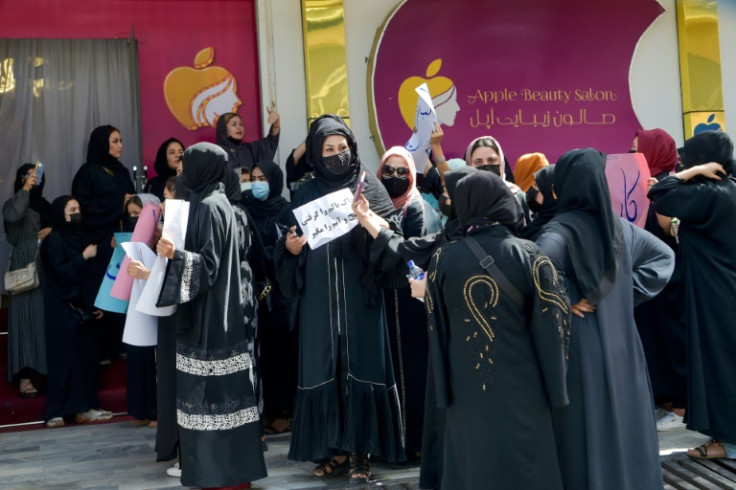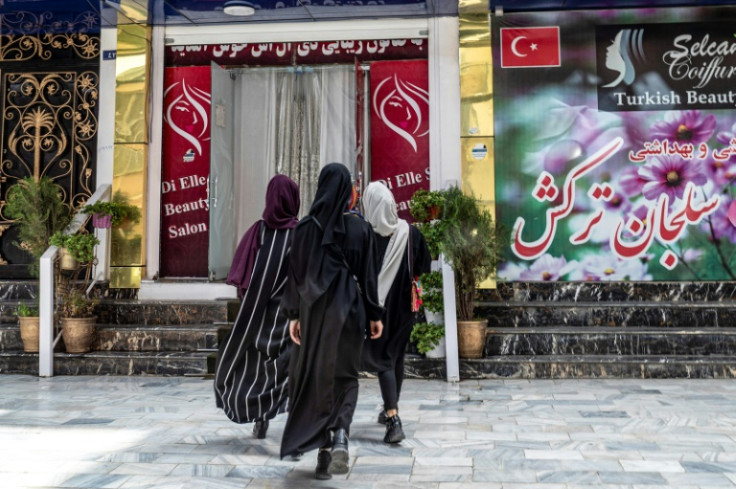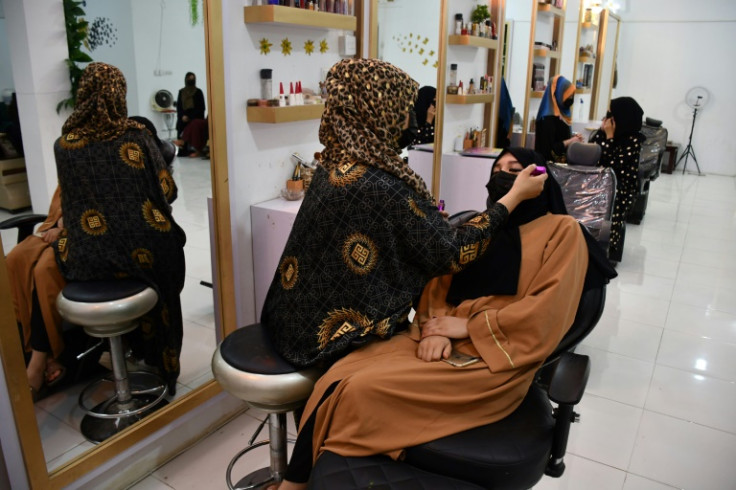Thousands Of Afghan Salons Close As Taliban Deadline Bites

Thousands of beauty parlours across Afghanistan closed permanently on Tuesday following an order by Taliban authorities that cuts off one of the few revenue streams available to women, as well as a cherished space for socialising.
Since seizing power in August 2021, the Taliban government has barred girls and women from high schools and universities, banned them from parks, funfairs and gyms, and ordered them to cover up in public.
But an order issued last month forces the closure of thousands of salons nationwide run by women -- often the only source of income for households and one of the few remaining places for them to gather away from home.
"We used to come here to spend time talking about our future together. Now even this right has been taken away from us," said Bahara, a salon customer in the capital Kabul.
"Women are not allowed to enter entertainment places, so what can we do? Where can we go to enjoy ourselves? Where can we gather to meet each other?"
Last week, security officials shot into the air and used firehoses in the city to disperse dozens of women protesting against the order.
On Tuesday, many salons in Kabul had already closed, while others were staying open until the last possible minute.
One salon owner said she had been forced to sign a letter saying she was shutting down willingly and would hand in the shop's licence to operate.
"The scene was terrible -- they came with military vehicles and guns," the owner said, asking not to be identified.
"What can a woman do in the face of so much insistence and pressure."
The Ministry for the Promotion of Virtue and Prevention of Vice announced the forced closures in June, with a grace period to allow stock to be used up.
The ministry claimed extravagant sums spent on makeovers caused hardship for poor families and that some treatments at the salons were un-Islamic.
Too much make-up prevented women from proper ablutions for prayer while eyelash extensions and hair weaving were also forbidden, it added.
A copy of the order seen by AFP said it was "based on verbal instruction from the supreme leader" Hibatullah Akhundzada.
Beauty parlours mushroomed across Kabul and other Afghan cities in the 20 years that US-led forces occupied the country.
They were seen as a safe place to socialise away from men and to prepare for celebrations such as weddings.
Thousands of female government workers either lost their jobs when the Taliban government took over or are being paid to stay at home.
The beauty parlour ban will see another 60,000 women lose their income from work at some 12,000 salons across the country, according to the Afghanistan Women Chamber of Commerce and Industry.
A report to the UN's Human Rights Council last month by Richard Bennett, the special rapporteur for Afghanistan, said the plight of women and girls in the country "was among the worst in the world".
"Grave, systematic and institutionalized discrimination against women and girls is at the heart of Taliban ideology and rule, which also gives rise to concerns that they may be responsible for gender apartheid," Bennett said.


© Copyright AFP 2024. All rights reserved.




















